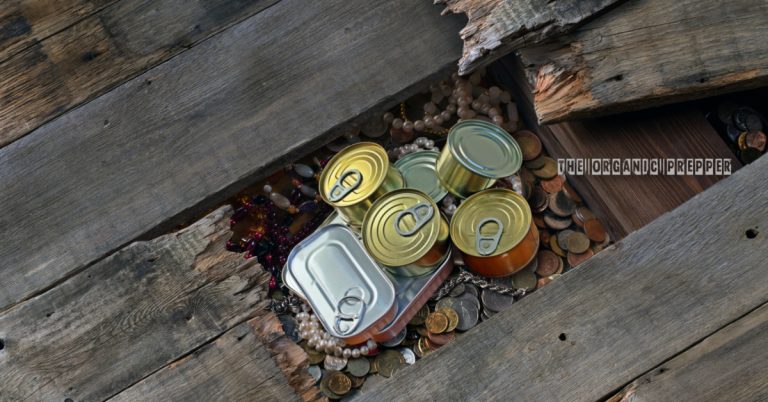by Marie Hawthorne, The Organic Prepper:

We at the OP have been sounding the alarm on food shortages for a long time now. Whether it’s been the fires at food processing facilities, farm closures, or the issues around meat production, we’ve been talking about it. But now, is it time to focus more on how to store food secretly?
Building a pantry and becoming proficient at producing and processing your own food are important first steps. I’d like to think that different groups of people forming self-sufficient production communities would prevent future problems, but that may not be the case. It looks like there are going to be major problems up ahead.
TRUTH LIVES on at https://sgtreport.tv/
Will history repeat?
During the Holodomor in Ukraine from 1932-1933, any withholding of food by farming communities was forbidden. Everything was supposed to go to the cities. Neighbors were encouraged to rat each other out to the authorities. Anyone suspected of hoarding could expect to have their homes torn apart, walls broken into, and earth dug up around their properties by the police, looking for caches of food.
These capable peasants, these kulaks, who had been born into the self-sufficient lifestyle many people are now trying to recreate, still largely perished.
And this sort of thing is hardly unique to the Soviets.
For an account of the famine in Mao’s China, you can read Wild Swans by Jung Chang. In her chapter on the famine in the late 1950s, she recounts many of the same techniques used by the Soviets. This is hardly surprising; Mao idealized Stalin. They collectivized farms, took everything produced by farmers to ration to the city-dwellers, and left the people in the countryside to scavenge.

Like in the Holodomor, many people resorted to cannibalism. Also, like in the Holodomor, many more starved. Eating alone became forbidden. Everyone had to eat in the communal kitchens, making it easier to monitor who ate what.
Do I think this might happen in the U.S.? Nothing’s impossible. Knowing how utterly incapable many people are in the kitchen, I think it’s more likely violent fights will occur over things like freezer-ready meals once Americans get hungry. I suspect flash mobs like the one that just ransacked a Wawa’s in Philadelphia will become far more common before any kind of coordinated government action.
This is the kind of thing a large, working pantry will largely protect against.
Sure, I still go to the grocery store most weeks, but I don’t absolutely have to. If riots erupt at the grocery store in town (again, I think, one of the more likely scenarios), well, I can just avoid it for however long the craziness lasts. And, in case anyone thinks I’m being ridiculous here, the grocery store in my town within the last few months hired armed guards.
That’s right; there are armed security guards at my local grocery store. Planning for chaos at the grocery store isn’t only for the tinfoil hat wearers anymore; it’s a sober business decision now.
And those of us with home pantries should still be cautious.
All is not well in American farming.
Aside from the catastrophic drought, American farmland is increasingly controlled either by foreign entities or non-farmers with suspect motivations like Bill Gates. As in any other field, centralization makes for easier control, and American farms have been trending toward centralization for a while now.
The government has also become increasingly interested in home gardens. The People’s Garden Initiative has just been expanded.
Tom Vilsack, then Secretary of Agriculture, founded the first “People’s Garden” on February 12, 2009, Lincoln’s 200th birthday. It was called “The People’s Garden” in reference to Lincoln calling the U.S. Department of Agriculture “The People’s Department.” The project initially began as a resource for urban dwellers to start their own community gardens. It was a way for people who would not otherwise have access to space and resources to grow their own food could get started and, once started, get advice on things like pollination and compost.
Read More @ TheOrganicPrepper.ca



